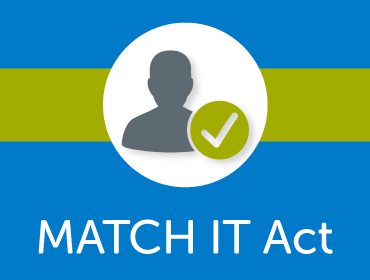
There is a new bill in the works for an old problem. The Patient Matching and Transparency in Certified Health IT (MATCH IT) Act of 2024, introduced by Rep. Mike Kelly (R-PA) and Rep. Bill Foster (D-IL), would ensure consistency in the way demographic details like patient names and birthdays are recorded across all patient records within certified health IT platforms. It also would establish an industry-wide standard definition for a “patient match rate.”
The MATCH IT legislation seeks to decrease patient misidentification within the healthcare ecosystem and improve patient safety and privacy.
The goal is to increase accuracy in matching patients with their records. With 86 percent of clinicians reporting they have witnessed a medical error caused by patient misidentification, enough is enough.
But that is not all.
According to Black Book Research, the expense of repeated medical care due to duplicate records costs an average of $1,950 per patient inpatient stay and more than $1,700 per emergency department visit. Further, 35 percent of all denied claims result from inaccurate patient identification, costing the average hospital $2.5 million and the US healthcare system more than $6.7 billion annually.
The MATCH IT Act has broad industry support from the Patient ID Now Coalition (with more than 50 healthcare stakeholder members) including HIMSS, AHIMA, CHIME, and others.
There is a petition to urge members of Congress to co-sponsor the MATCH IT Act of 2024. There also is wide industry support to repeal Section 510 in the Labor HHS appropriations bill which bans federal funds from being used to adopt a unique patient health standard.
Proponents of the MATCH IT Act say that with HIPAA and advanced technology solutions, patient privacy concerns can be addressed.
Efforts to address patient identification and matching and the efforts to advance a national strategy have been stalled for the past 20 years. The initial push back was because of patient privacy concerns, but with the full implementation of HIPAA to address patient privacy, the increased use of EHRs and the push for increased interoperability, those barriers are different from how they were several decades ago.
The new patient matching effort is solution agnostic. The goal is to have the Department of Health and Human Services work with the private sector and public health on a national strategy.
The Patient ID Now coalition has outlined a Framework for a National Strategy on Patient Identity that addresses several key areas:
- Accurate identification and match rates
- Privacy
- Security
- Standardization
- Portability and interoperability
- Data quality
- Integration with current systems
- Equity and inclusion
- Sustainability and governance
Active and legacy health records would benefit from patient matching effort.
Improving patient matching is the right thing to do for the complete lifecycle of the patient record. With record retention requirements often spanning decades, the need for a coordinated and accurate long-term patient matching strategy will benefit both active and legacy records. Consider that more than half (51.8%) of all adults in the U.S. have a diagnosed chronic condition (arthritis, cancer, heart disease, asthma, hypertension, stroke, etc.) and 27.2% of adults with multiple chronic conditions. Access to the longitudinal, complete patient history supports improved health information for clinicians which translates into improved patient outcomes.
Our team at Harmony Healthcare IT has decades of experience archiving clinical, financial, and business records for providers of all sizes. We fully support standardizing patient identification efforts throughout the entire healthcare ecosystem which will serve the complete lifecycle of the data.
To support patient matching within legacy data archiving, we have developed options for patient matching within our HealthData Archiver® cloud-hosted storage solution. Check out this two-minute video to learn more about our current patient identity management offering.
The need for standardization and accuracy in patient matching will only increase as more records continue to be added to healthcare systems nationwide.
Our focus is on the complete lifecycle availability of those healthcare records.
Our drive is to innovate technology-based solutions that serve our customers and solve problems. The MATCH IT Act can help remove obstacles.
We are here to help.






